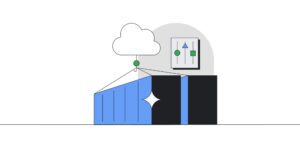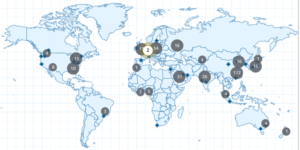[ad_1]
The web runs on the Border Gateway Protocol (BGP). A community or autonomous system (AS) is sure to belief, settle for, and propagate the routes marketed by its friends with out questioning its provenance. That’s the energy of BGP and permits the web to replace rapidly and heal failures. However it’s also its weak spot—the trail to prefixes owned by a community might be modified by chance or malicious intent to redirect, intercept, or blackhole visitors. Final 12 months alone, there have been tons of of routing outages or incidents, reminiscent of route hijacking and leaks. These incidents led to large-scale distributed denial of service (DDoS) assaults, stolen information, misplaced income, reputational harm, and extra.
Routing safety is significant to the longer term and stability of the Web and Microsoft has lengthy been dedicated to enhancing web routing safety. Again in 2019, Microsoft joined the Mutually Agreed Norms for Routing Safety (MANRS) initiative to deal with the challenges associated to routing safety, which impacts companies and customers every day. We carried out the present MANRS framework in our operations and partnered with Web Society, the Cybersecurity Tech Accord, and different organizations to look at how actors past community operators and web change factors (IXPs) can successfully contribute to routing safety.
At present we’re happy to announce the steps Microsoft will take to implement the brand new actions outlined by the MANRS Cloud and CDN program. These set of actions embody:
RPKI (Useful resource Public Key Infrastructure) origin validation
RPKI is public key infrastructure framework designed to safe the Web’s routing infrastructure. It’s used to safe BGP routes origin data. RPKI has come a great distance and its adoption has doubled over the past 12 months. Microsoft has accomplished signing all BGP routes introduced by our Autonomous System Quantity (ASNs). We just lately up to date our peering coverage with the dedication to implement RPKI filtering by the center of 2021. We perceive these modifications can take time and we are going to work with our web friends to verify this transition is easy.
Route object validation
Public Web Routing Registries (IRR) proceed to carry a big a part of route origin data and relationships. Microsoft will use IRR databases to validate all incoming routes. Now we have up to date all our data in RADb and to guard our community, we are going to work with our peer networks to replace route data in public IRRs. Inside Microsoft, we developed a world Route Anomaly Detection and Remediation (RADAR) system to guard our international community. RADAR detects and mitigates in real-time Microsoft route hijacks on the Web. RADAR additionally detects route leaks in Microsoft community and on the Web. A BGP route leak is the propagation of routing announcement(s) past their meant scope. With RADAR we use the general public route database to determine the meant community path data (AS Path).
With RADAR, we ensure to route the visitors from Microsoft to prospects through most popular paths even when malicious exercise is detected. Prospects who’re leveraging web service suppliers (ISPs), web change companions (IXPs), and software-defined cloud interconnect (SDCI) suppliers who’ve joined the Azure Peering Service also can register to RADAR data and keep knowledgeable when a route anomaly is detected.
Improve collaboration with peer networks and registries
Microsoft interconnects with 1000’s of networks through greater than 170 edge factors of presence areas. We’ll work with all peer networks to guard visitors over the Web. In our peering portal we already present RPKI and route object data for all of the acquired routes. Peer networks can see RPKI, route object, and community path data within the portal after which can repair the routes in respective registries. At present deal with areas are managed by completely different registries (ARIN, LACNIC, RIPE, and extra) and it isn’t simple to handle route objects throughout all registries. We’ll work with registries to make it simpler for our web friends and typically for all web service suppliers to simply handle these route objects.
Web routing safety would require fixed updates to requirements. There is no such thing as a single customary which might deal with the problems confronted on the Web at present and we have to replace routing safety requirements as and after we see new threats rising. Not too long ago we labored with the MANRS neighborhood to replace these requirements and we’re excited to hitch with different MANRS members in implementing them. Lastly, we need to thank MANRS and Web Society for bringing the web neighborhood collectively on this essential topic and being the driving power for accelerating web safety.
[ad_2]
Source link





